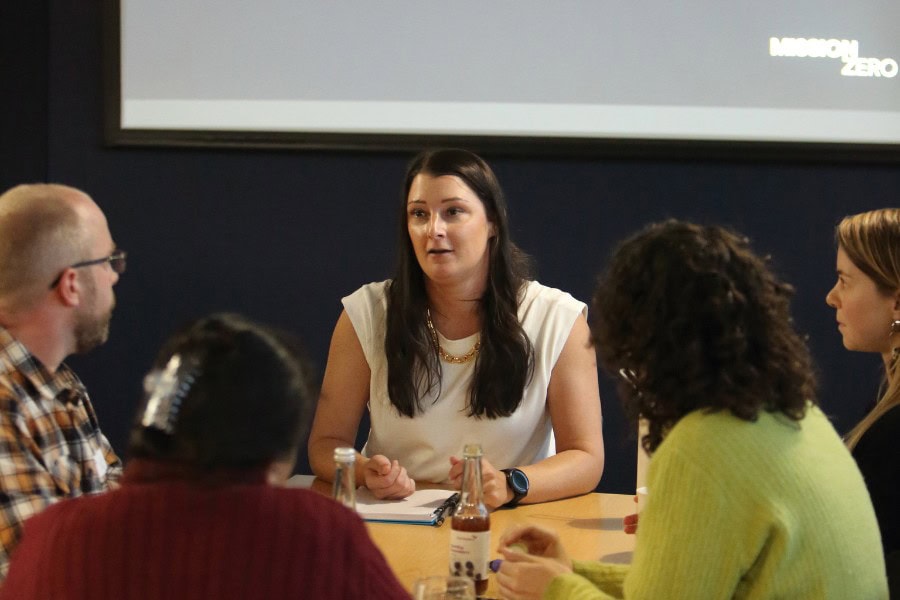Mission Zero hosts numerous climate change workshops throughout the year. In May 2024, our first Behaviour Change session featured several round-table discussions led by professionals experienced in sustainable transport, energy, waste, and procurement.
Rachael Williams-Gaul, Sustainability Assurance Advisor for McHugh & Shaw and former Environmental Management Leader for Nelmac Kūmānu, led the discussion on the behavioural changes needed for a smooth transition to a low-emissions fleet.

Businesses with fleets face several challenges when transitioning to lower-emissions vehicles. These challenges can create significant resistance to change and include:
- Availability of suitable, lower-emissions replacement vehicles
- Infrastructure needs (e.g. charging stations)
- Complexity related to route planning (for re-charging and/or car-sharing) and maintaining good battery health
- Willingness to change driving behaviour
During the discussion, Rachael and workshop attendees identified several strategies required for leading behaviour change in the transition to low-emissions, including:
- Knowing Your Numbers: Calculating data related to fuel usage, fuel emissions, vehicle fuel efficiency, the total costs of vehicle ownership, and maximum journey distances (such as can be obtained through GPS tracking data).
- Creating a Thorough Asset Management Plan: Ensuring upgrades – potentially a once-in-thirty-years occurrence – are made at the right time and with the right plant and vehicles.
- Establishing Winnable Targets: Focusing on areas where enthusiasm is greatest and impact highest.
- Identifying Champions: Gaining commitment from the top, asking people to lead by example, engaging activity-specific advocates (e.g. bikers, car poolers), and recruiting a sustainability committee for extra support.
- Making Things Easy: Identifying conveniences (e.g. bike storage areas, easily accessible vehicle charging), networks (e.g. car-pooling enthusiasts), and external schemes (e.g. WorkRide) to help reduce barriers.
- Rewarding Sustainable Choices: Offering financial incentives or alternative benefits in place of car packages and creating competitions with prizes.
- Raising Visibility: Extolling the benefits of low-emissions activities (such as online meetings), sharing data, and communicating progress.
Speaking from their own experiences workshop attendees noted the benefits of driver-related behaviour change on safety – specifically down to reduced speeds onsite – and business cost through a reduced need for tyre and vehicle maintenance.
Beyond all of this, Rachael emphasised the need to accept the likely long timeframe for this work to gain traction, and the importance of maintaining enthusiasm.
Transport is one of Aotearoa New Zealand’s largest sources of greenhouse gas (GHG) emissions, accounting for approximately 17% of gross domestic emissions and 39% of total domestic CO2 emissions.1
Learn more about the Government’s plan to reduce GHGs from transport in Aotearoa New Zealand’s first emissions reduction plan (published May 2022).
- Figures are based on an estimate of 2019 transport emissions from New Zealand’s Greenhouse Gas Inventory 1990–2020. ↩︎



